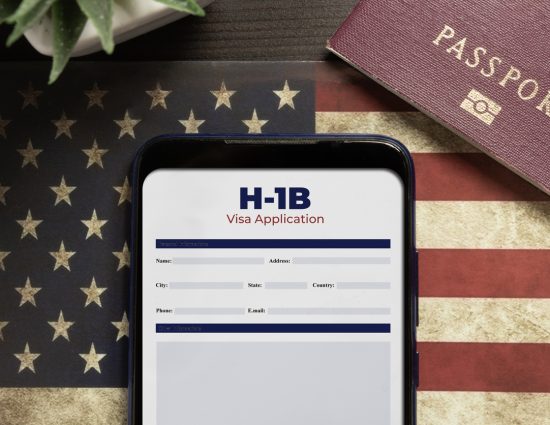Maximizing Employee Success: Effective Post-Relocation Support Strategies

Any global mobility leader knows that a successful relocation doesn’t end when a transferee arrives. In fact, post-relocation support can be the key to ensuring a smooth transition and a successful assignment.
Statistics show that new transferees are more likely to leave their job, or fail at the assignment, than employees. The Society for Human Resources found that turnover rates for relocated employees far outpace their local peers. And with an average employee relocation costing anywhere from $20,000 to nearly $100,000, the financial stakes are high for organizations.
So what can HR leaders do to maximize employees’ success after a relocation? Here are some best practices from our 25 years of working with mobility teams and their transferees.
Engage Mentors
Did you know that companies with mentorships are more likely to outperform those who do not offer that type of peer-to-peer engagement? That’s according to a recent report by MentorcliQ. Their research found that companies with mentoring programs showed profit improvements 15% better than average.
The message is clear: helping employees connect and learn from peers leads to more fully engaged, happier and more productive employees. Not sure where to start? Ask repatriated employees what would have been most helpful and welcomed following their own relocation. Mentor programs come in many forms; you might consider engaging recently relocated individuals to be mentors in their departments, or partnering mentors-mentees based on job level (VP to VP, for instance) or by their household situation (transferees with families versus singles or couples).
Provide Settling-In Perks
We all know how stressful a move can be, so make sure your mobility policy considers support for transferees and their trailing spouse and/or family to settle in. Consider awarding time off shortly after resettling, and later once the hustle-bustle of the move is over. Maybe it is a comp day, a long weekend, or other bonus time off – anything to help them land in the new location.
If your budget allows, treat your assignee to something special again a few months after arrival. For example, thanks to one CapRelo client’s stipend, one of their Australia transferees was able to experience the Sydney Opera House a few months after their relocation.
Extend Spouse Support
My grandfather had a saying: When mama’s not happy, ain’t nobody happy. There’s a lot of truth to that when it comes to relocations. By taking care of the people moving with your employee, your transferee can focus on the job at hand rather than worrying about how the family is adjusting.
In addition to the pre-move support in your mobility policy, be sure transferees have flexible options for the destination services most important to them. In addition to those services needed immediately after a move (like cultural or language training, for instance), set aside some budget to use a few months post-relocation, too. Now that the newness has worn off is a good time to check in with the spouse. Has he or she met friend groups or joined clubs? Have the kiddos found sports teams or the other extracurricular activities they had hoped for? Extending destination services out for several months helps keep their interest in the new location.
Seek Feedback
Speaking of check-ins, make sure your relocation management consultant follows a regular schedule for checking in with the transferee and his or her support network. That includes:
- Post-move check ins – How are you settling in? Did you household goods arrive? How is your housing? Any concerns?
- Check ins with the hiring manager – How is the assignee doing? Identifying and addressing any concerns early on post-relocation is beneficial for both the employee and the company.
- Monthly check-ins – How are the kids doing in their new school? Did they get into the band or teams they wanted? How is the spouse doing in finding social networks?
Commit to Continuous Improvement
If you want to build a world-class mobility organization, your transferees are your single best source of intel. The key is to not just ask for the feedback, but have a top-down commitment to making meaningful improvements based upon it.
One CapRelo client, for example, does on-site coffee chats with transferees two weeks after their relocation. They ask things like how are you settling in, how was your recruiting experience, did you understand your benefits, what can we do to help you acclimate more? Sometimes, the recruiter might be overpromising. Or, perhaps the relocation required dealing with way too many vendors/suppliers which was overwhelming. Regardless, our team then shares that feedback in monthly debriefings intended to improve their mobility process.
For many organizations, we implement a 30-60-90 feedback strategy. Checking in at month one, two and three post-relocation helps us drill down to any issues the transferee may be having at each juncture. Initially, for instance, they might share challenges in finding housing or need help getting the home unpacked and organized. Later, the focus may be on challenges in getting acclimated and connected.
Turnover is another key metric that your relocation management consultant should be monitoring. Start looking at why people are leaving and ways to correct. For example, I recently worked with a client to develop a multi-year history of transferee staffing and turnover. We analyzed how many are still on the payroll, and of those who left, why and when did they leave and how much did their relocation cost. Was this a bad hire situation, a bad fit, a bad culture situation or something else. In one case, we found that the 24% attrition level was due to bad recruiting.
It’s important to work with an RMC who reviews your policy regularly, and benchmarks it against others. As we wrote in a recent CapRelo blog, “Relocation packages are increasingly becoming used not only as a way to keep in-house talent happy in the event of a transfer but also as an effective recruiting tool, particularly for globe-trotting millennials who often relish the chance to broaden their business and personal horizons.
“If companies find they are losing talent– especially as part of a transfer process – then a review of their relocation policies and strategies may be necessary to keep up with the changing face of the modern workforce.”
Collaborate with CapRelo
Yes, it takes an investment to commit to a post-relocation touch-base plan, and it must be weighed against cost. But earmarking dollars for post-relocation benefits, or perhaps adding another one-hour RMC consulting call, may be budget well spent to improve employee success and reduce turnover.
Doing global mobility well is what CapRelo is all about. If you are looking to improve employees’ post-relocation success and elevate your mobility program, talk to our relocation experts. We’re proud to be trusted partners to some of the world’s most successful mobility organizations.



